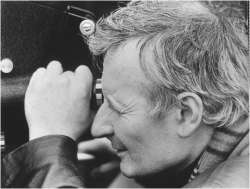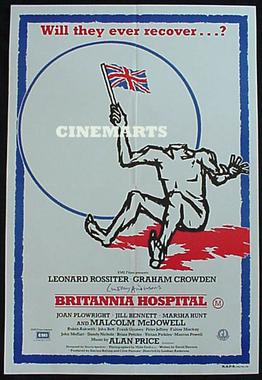5:17 PM "Mongol" - Last Battle Scene-Britannia Hospital __ Lindsay Anderson__ | ||||
"Mongol" - Last Battle Scene_ "Mongol" - Last Battle Scene Mongols need laws. How the fuck is it shameful? NO ONE ELSE had beaten the Mongols up to that point. It destroyed their image of invincibility. do yoy Mind telling me where you're getting your numbers from? According to Robert Cowley's "The Reader's Companion to Military History" both sides were evenly matched at 20,000 men. Eric H. Cline's "The Battles of Armageddon" says that "In short, the armies that were to meet at Ain Jalut were probably of the same size, with between <<ten thousand and twenty thousand men>> in each." ==================================== Britannia Hospital __ Lindsay Anderson__ and Britannia Hospital (1982), a fantasia taking stylistic influence from the populist wing of British cinema represented by Hammer horror films and Carry On comedies.  /. Lindsay anderson.jpg/.Britannia Hospital is a 1982 black comedy film by British director Lindsay Anderson which targets the National Health Service and contemporary British society. It was entered into the 1982 Cannes Film Festival and Fantasporto.[3] Britannia Hospital is the final part of Anderson's critically acclaimed trilogy of films, written by David Sherwin, that follow the adventures of Mick Travis (Malcolm McDowell) as he travels through a strange and sometimes surreal Britain. From his days at boarding school in if.... (1968) to his journey from coffee salesman to film star in O Lucky Man! (1973), Travis' adventures finally come to an end in Britannia Hospital which sees Mick as a muckraking reporter investigating the bizarre activities of Professor Millar, played by Graham Crowden, whom he had had a run in with in O Lucky Man. All three films have characters in common. Some of the characters from if...., that didn't turn up in O Lucky Man, returned for Britannia Hospital.
 ././ ././PlotA new wing at Britannia Hospital is to be opened, and the Queen Mother – referred to as HRH – is due to arrive. The administrator of the hospital, Potter (Leonard Rossiter), is confronted with demonstrators protesting against an African dictator who is a VIP patient, striking ancillary workers (opposed to the exotic gastronomic demands of the hospital's private patients) and a less-than-cooperative Professor Millar (Graham Crowden), the head of the new wing. Rather than cancel the royal visit, Potter decides to go out and reason with the protestors. He strikes a deal with the protest leader — the private patients of Britannia Hospital are to be ejected and, in return, the protestors allow a number of ambulances into the hospital. However, unbeknown to the protestors, these ambulances actually contain the Queen Mother and her entourage. Mick Travis (Malcolm McDowell) is a reporter who is shooting a clandestine documentary about the hospital and its dubious practices. He manages to get inside and starts to investigate Millar's sinister scientific experimentation, including the murder of a patient, Macready (Alan Bates). As mayhem ensues outside, Travis is also murdered and his head used as part of a grim Frankenstein-like experiment which goes hideously wrong. Eventually, the protestors break into the hospital and attempt to disrupt Millar's presentation of his Genesis Project, in which he claims he has perfected mankind. In front of the assembled audience of Royalty and commoners, Genesis is revealed — a brain wired to machinery. Genesis is given a chance to speak and, in a robotic voice, utters the "What a piece of work is a man" speech from Hamlet, until it continuously repeats the line "How like a God". PlotA new wing at Britannia Hospital is to be opened, and the Queen Mother – referred to as HRH – is due to arrive. The administrator of the hospital, Potter (Leonard Rossiter), is confronted with demonstrators protesting against an African dictator who is a VIP patient, striking ancillary workers (opposed to the exotic gastronomic demands of the hospital's private patients) and a less-than-cooperative Professor Millar (Graham Crowden), the head of the new wing. Rather than cancel the royal visit, Potter decides to go out and reason with the protestors. He strikes a deal with the protest leader — the private patients of Britannia Hospital are to be ejected and, in return, the protestors allow a number of ambulances into the hospital. However, unbeknown to the protestors, these ambulances actually contain the Queen Mother and her entourage. Mick Travis (Malcolm McDowell) is a reporter who is shooting a clandestine documentary about the hospital and its dubious practices. He manages to get inside and starts to investigate Millar's sinister scientific experimentation, including the murder of a patient, Macready (Alan Bates). As mayhem ensues outside, Travis is also murdered and his head used as part of a grim Frankenstein-like experiment which goes hideously wrong. Eventually, the protestors break into the hospital and attempt to
disrupt Millar's presentation of his Genesis Project, in which he claims
he has perfected mankind. In front of the assembled audience of Royalty
and commoners, Genesis is revealed — a brain wired to machinery.
Genesis is given a chance to speak and, in a robotic voice, utters the "What a piece of work is a man" speech from Hamlet, until it continuously repeats the line "How like a God". Cast
ProductionBritannia Hospital took a number of years to set up. It was originally called Memorial Hospital, and according to David Sherwin's diaries Going Mad in Hollywood, was going to be financed by 20th Century Fox under Sherry Lansing. The Fox deal fell through but the project was then saved by producer Clive Parsons who managed to set up financing through EMI under Barry Spikings. It was filmed at Shepperton Studios, using Friern Hospital in Barnet as the exterior of the hospital. ReceptionBritannia Hospital was a box-office failure. The film was lambasted by the British critics on release, although Geoff Daniel, David Robinson and Dilys Powell listed it as one of the films of the year.[4] Britannia Hospital was withdrawn by EMI a month after its release. Critic Ian Haydn Smith considers Britannia Hospital the "nadir" of Anderson's career. "Replacing satire with broad comedy, the film fails on every level in its attempt to critique the state of the National Health Service".[5] The film won the "Audience Jury Award" at Fantasporto. It has since been widely available on both VHS and DVD. References
External links
================================================ | ||||
|
| ||||
| Total comments: 0 | |